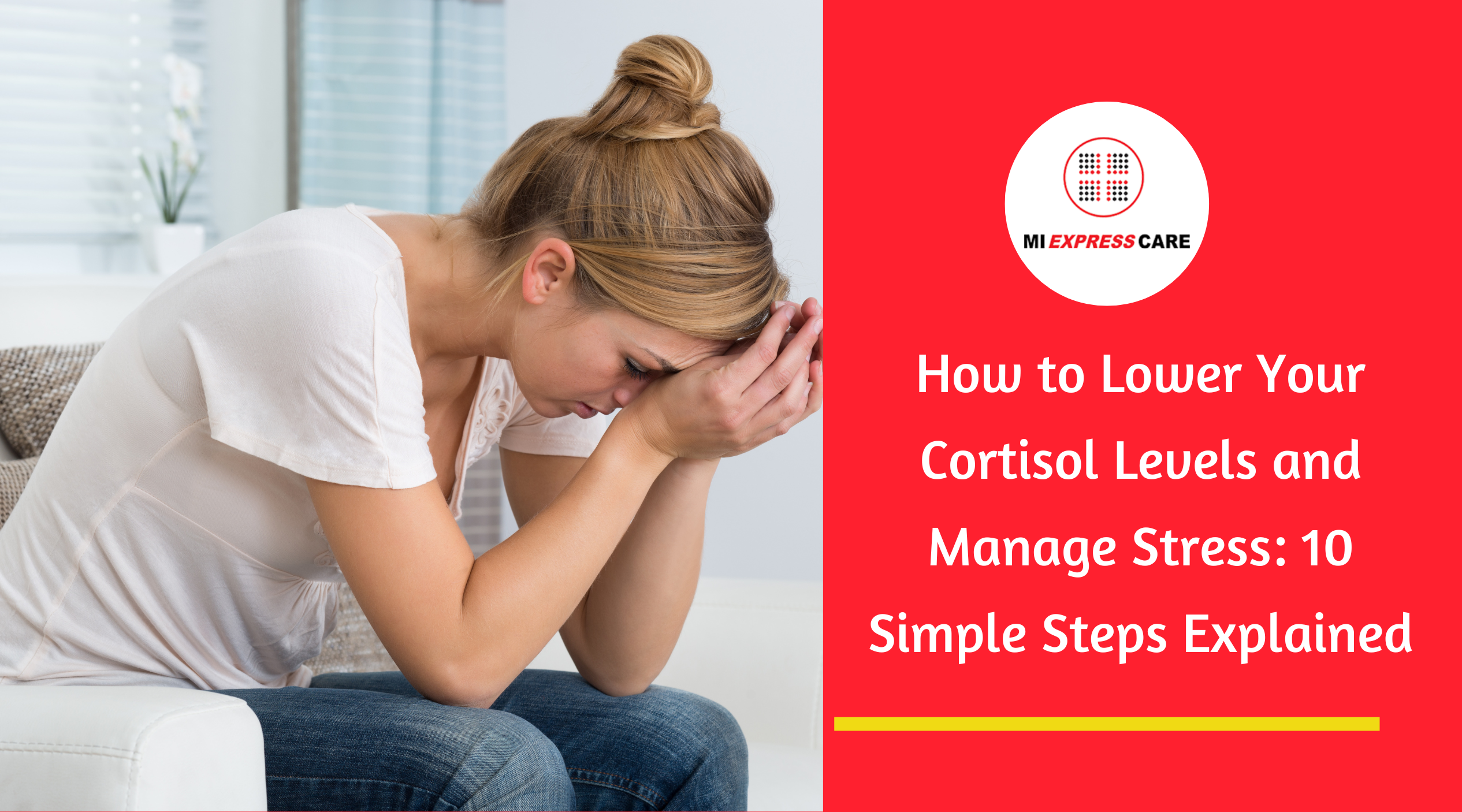


Let’s face it, life can be stressful. Between work, family, and everything else going on, it feels like stress is constantly lurking in the background. That’s cortisol kicking in. It's often referred to as the stress hormone, and it's your body's way of helping you respond to stress. While it’s vital for handling immediate stress, too much of it can be a real problem, leading to weight gain, anxiety, sleep troubles, and other health concerns.
Fortunately, there are plenty of natural and simple ways to lower your cortisol levels and feel more balanced. Let’s see how.
Cortisol is a hormone produced by your body in response to stress, helping to regulate blood pressure, metabolism, and the immune system. It’s beneficial in short bursts, like during a tight deadline or job interview, but problems arise when cortisol stays elevated for too long. Common causes of high cortisol include chronic stress, poor sleep, and an unhealthy diet. When cortisol remains high, it can lead to:
Weight gain (especially around your belly)
Trouble sleeping
Increased anxiety
High blood pressure
The key to a healthier, stress-free life is knowing how to lower your cortisol levels, and that’s exactly what we’ll explore next!
High cortisol levels don’t have to be a constant challenge. Let's explore 10 simple ways to help you manage stress and maintain balanced cortisol levels.
Sleep is essential for managing cortisol levels. Poor sleep spikes cortisol, increasing stress the next day.
Quick Tips for Better Sleep Hygiene:
Stick to a consistent sleep schedule.
Avoid screens at least an hour before bed.
Establish a calming bedtime routine, such as reading or taking a warm bath.
Limit caffeine and heavy meals before bed.
Mindfulness and meditation help activate your body’s natural relaxation response, reducing cortisol and calming the mind.
Try this breathing exercise:
Inhale for 4 seconds, hold for 7 seconds and exhale for 8 seconds. Repeat a few times.
Exercise helps reduce cortisol by releasing endorphins, however, excessive intense activity can raise cortisol levels.
Ideal Exercise for Stress Relief:
Moderate activities like walking, swimming, or yoga.
Avoid intense workouts when stressed.
What you eat impacts cortisol. A nutrient-rich, anti-inflammatory diet helps lower cortisol, whereas sugar and caffeine can spike it.
Foods to Include for Cortisol Control:
Leafy greens like spinach
Fatty fish such as salmon
Dark chocolate (moderate)
Berries
Limit sugar, caffeine, and processed foods to keep cortisol in check.
Caffeine and alcohol can increase cortisol over time. Try scaling back if you're using them to unwind.
How to Cut Back Without Going Cold Turkey:
Swap afternoon coffee for herbal tea.
Set weekly alcohol limits.
Social connections, laughter, and affection reduce cortisol and improve stress management.
Simple Ways to Stay Connected:
Share a meal or chat with loved ones.
Take a walk or play a game.
Offering a hug or physical touch can help lower stress.
Slowing your breath or stretching through yoga activates your body’s relaxation response, reducing cortisol.
Try This Easy Yoga Pose:
Child’s Pose: Sit on your knees, fold forward, and breathe deeply. It calms both mind and body.
Regular breaks prevent burnout and keep cortisol levels in check, boosting productivity and relaxation.
Effective Break Ideas:
Take a 5-10 minute walk outside.
Set a timer to step away from your desk for a few minutes.
Try a digital detox by turning off screens.
Adaptogens like ashwagandha can help balance cortisol levels, but consult your primary care doctor before use.
Tip: Always check with your doctor before using adaptogens, especially if you take medication.
A calming bedtime routine signals your body to unwind, lowering cortisol and promoting restful sleep.
Relaxing Bedtime Activities:
Soak in a warm bath with Epsom salts.
Read a book or listen to soothing music.
Try a short meditation to clear your mind.
If you’ve tried these natural ways to lower cortisol but still feel drained or overwhelmed, it may be time to see a healthcare professional. Watch for:
Persistent fatigue
Mood swings
Unexplained weight gain (especially around the abdomen)
Difficulty focusing or memory problems
Sleep that doesn’t feel restorative
Stress can feel overwhelming, but you don’t have to tackle it all at once. Try picking one or two easy tips to start, like getting better sleep or taking a few deep breaths. Little changes add up, and soon, you’ll notice a calmer, more balanced you. Remember, it’s about progress, not perfection. You’re on the right track!
When stress starts to take over, the right care makes all the difference. At MI Express Urgent Care in Canton & Ann Arbor we’re dedicated to helping you discover simple and effective ways to feel better quickly. We’re ready when you are. Together, we’ll find the best path to a calmer, healthier you.
Schedule a consultation today!